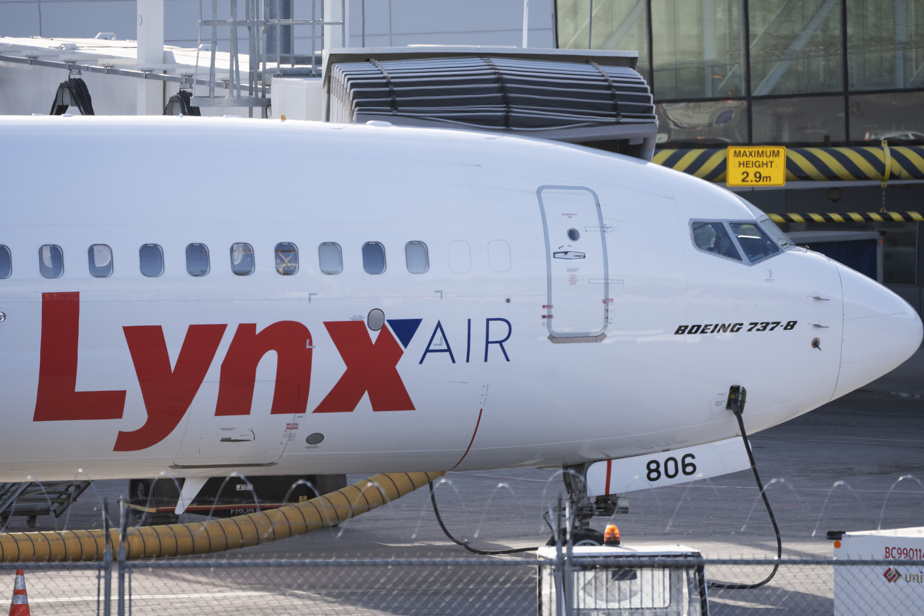Unlike many of its counterparts, the Montreal-Trudeau operator was able to recover some $2 million in overdue fees claimed from Lynx Air, this low-cost air carrier that suffered a financial disaster last February – at the gates of Spring Break.
According to recent court documents filed under the Bankruptcy and Insolvency Act, an agreement to stagger payments was reached between Aéroports de Montréal (ADM) and the company a few weeks before it took shelter from his creditors.
“We can confirm that all amounts owed by Lynx Air have been recovered,” the non-profit organization said in an email Friday.
ADM claims the “financial details” are “confidential”, but according to documents prepared by the FTI comptroller, it is a sum of 1.7 million for airport improvement fees – which are imposed on all Airlines companies.
The last payment made to ADM dates back to April 1, court documents state.
The picture is very different for the Calgary, Vancouver, Edmonton and Halifax airports. Together, they are seeking at least $4 million in unpaid fees from Lynx Air. Half of this amount was to be paid to the Calgary airport.
Before abruptly announcing the end of its activities last February, Lynx Air had stopped paying airports for airport fees.
This ultimatum was launched on February 8 by the vice-president of finance and administration and CEO of ADM, Aymeric Dussart, in a letter sent to the company whose head office was in Calgary.
“Lynx Air will be refused access to airport facilities and its letter of authorization will be terminated in its entirety, without prejudice and without further notice or delay,” wrote Mr. Dussart in this letter that La Presse was able to consult.
The collapse came less than two years after the Alberta carrier’s inaugural flight. It no longer had enough money in its coffers to continue its operations. It attributed its downfall to inflation, fuel prices, exchange rates, high financing costs and fees imposed in the Canadian airline industry, among other things. From Montreal, the company operated 12 to 15 flights per week.
Including aircraft leases, Lynx’s receivables totaled $600 million, according to documents filed with Alberta courts. The carrier lost $112 million last year while generating total revenue of about $166 million. In 2022, the shortfall amounted to 76 million, on a turnover of 58 million.
The Lynx Air debacle also caused well-known Quebec investors to lose money. Stepworth Holdings, controlled by Stephen Bronfman, and Stephenson Management, owned by the couple Mitch Garber and Anne-Marie Boucher, each owned 11.5% of the airline.




